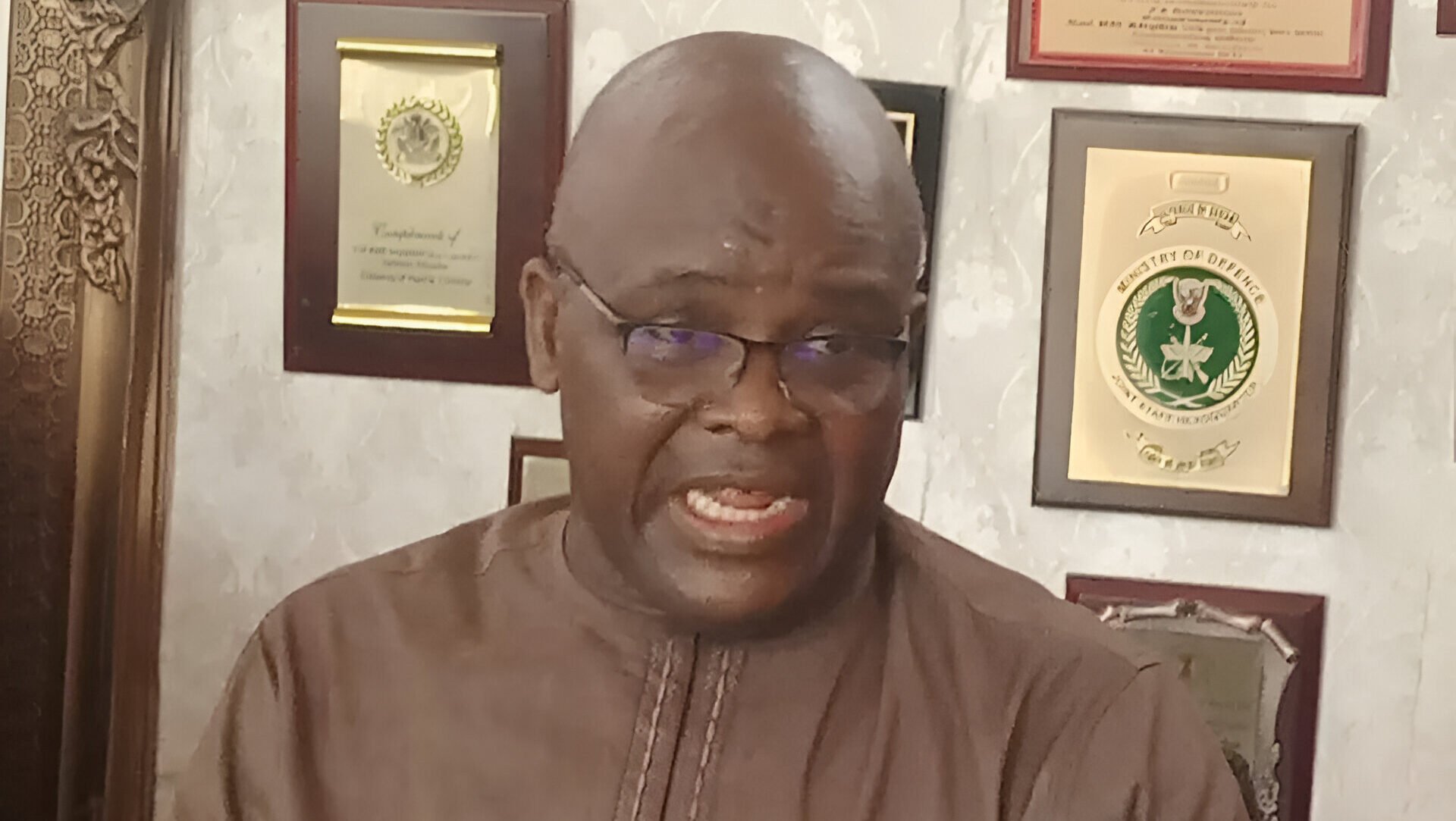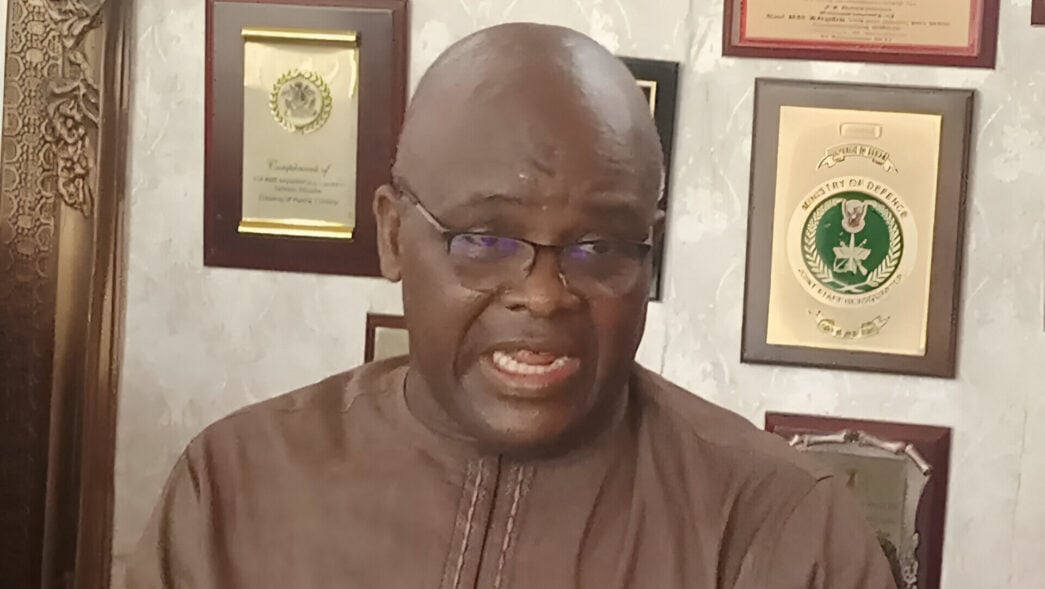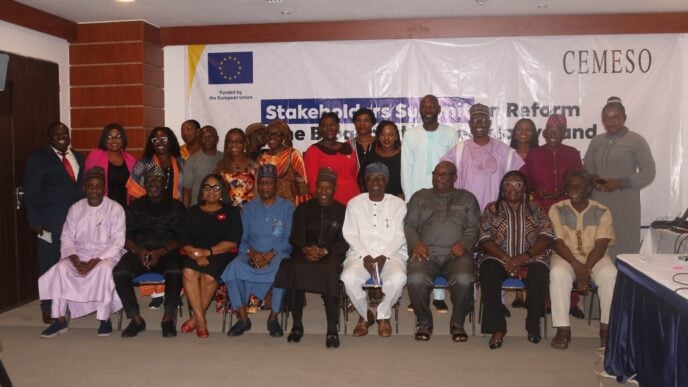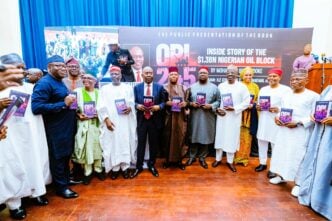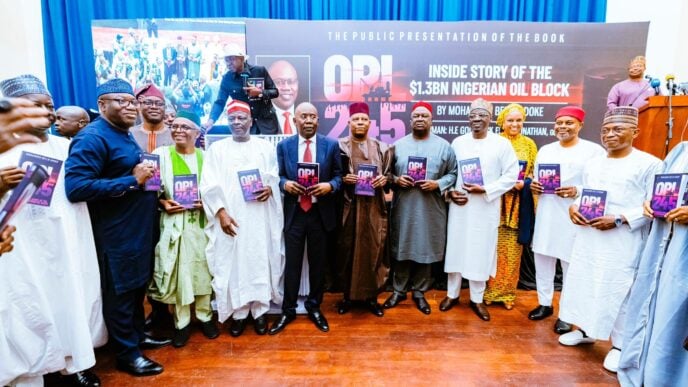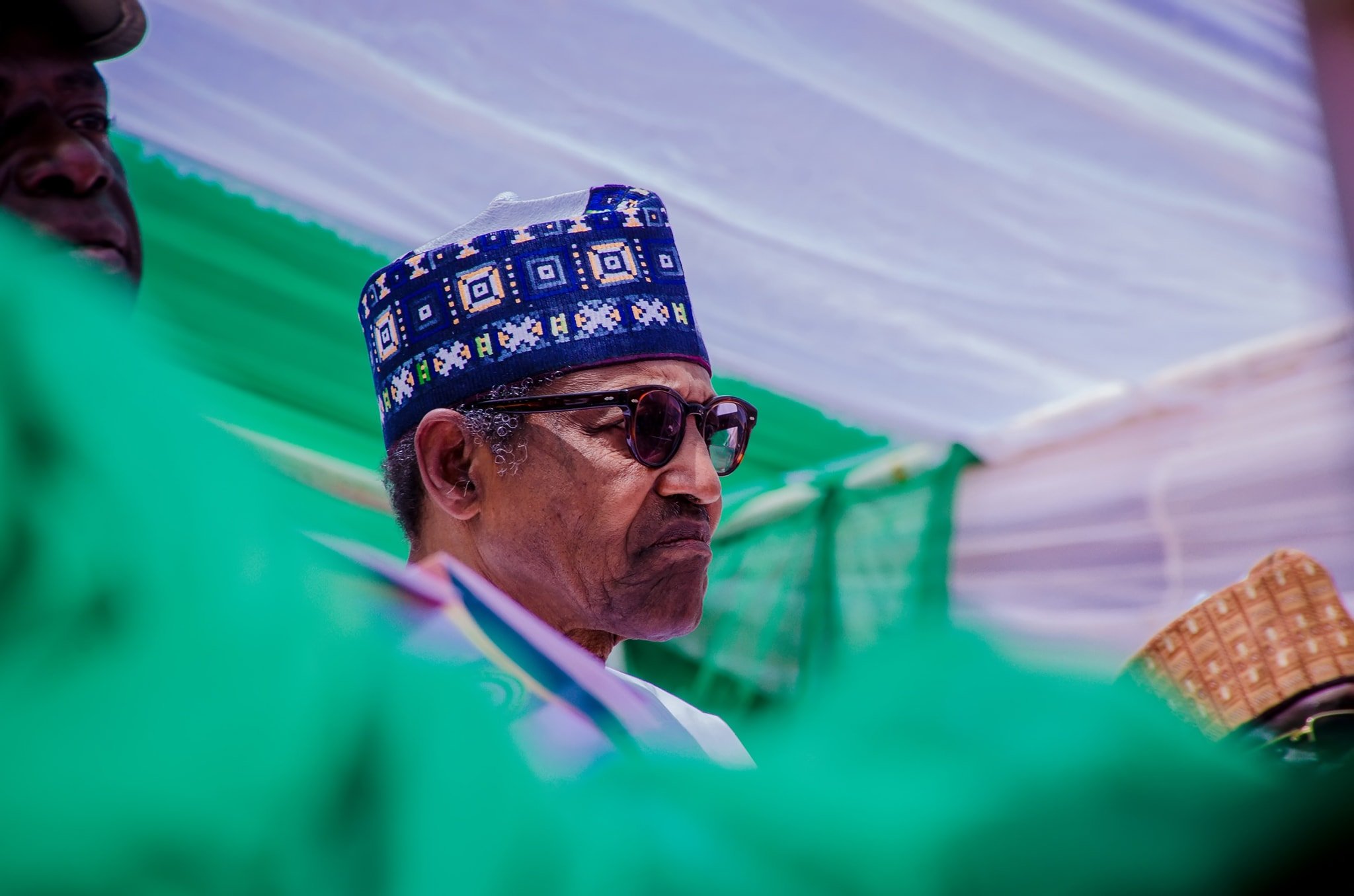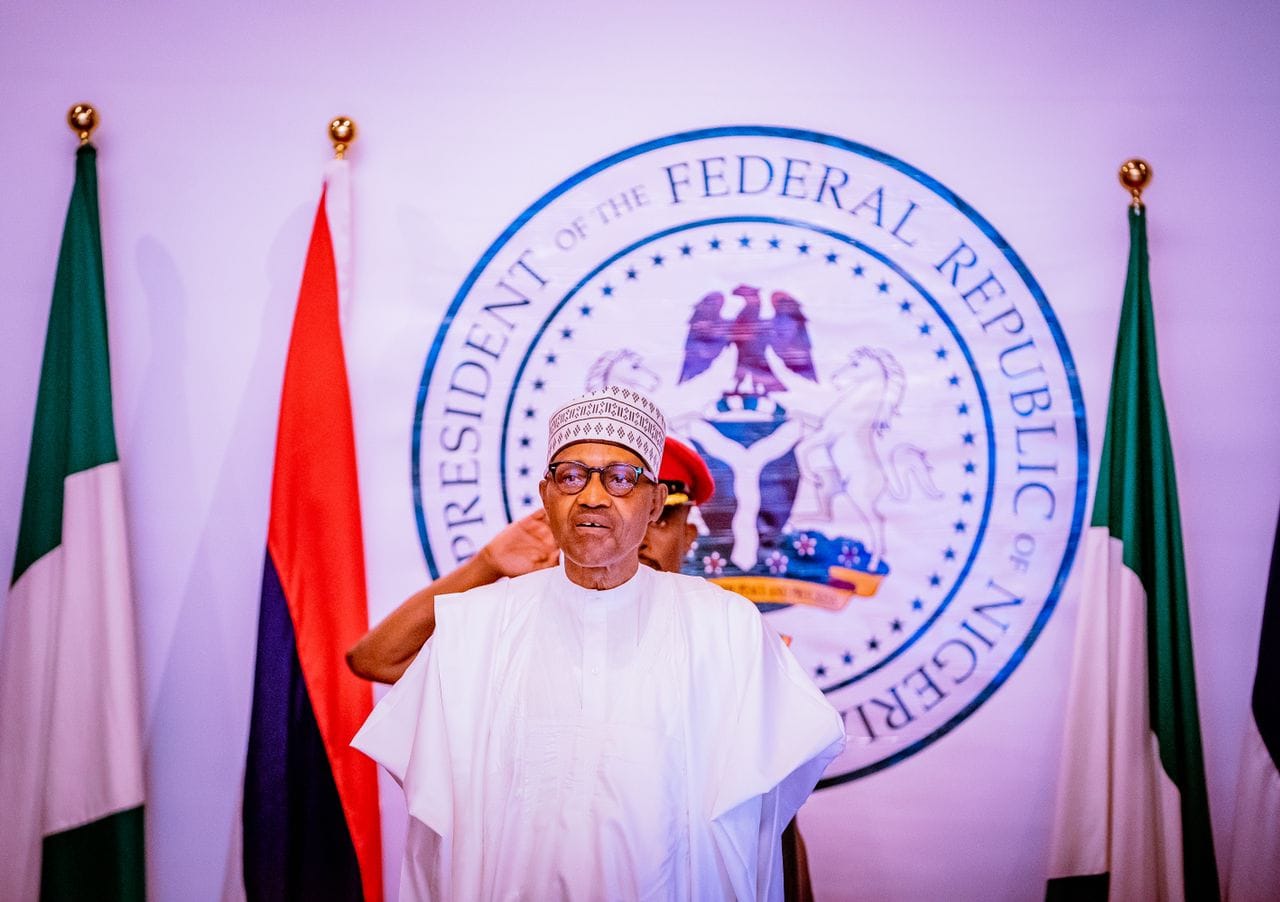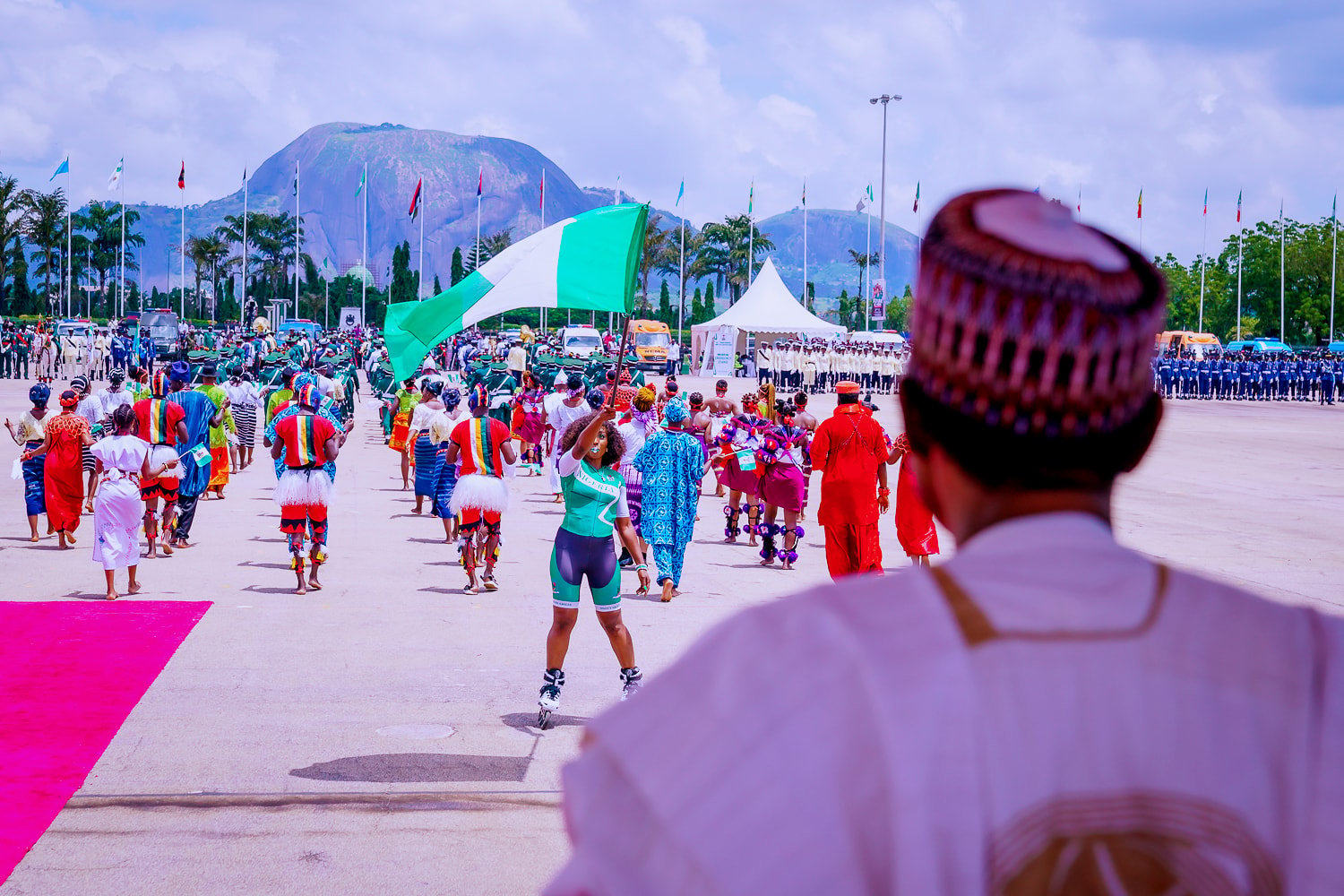Once upon a time, a retired Major General from the Nigerian Army, and a Minister of Defence once offered nuanced advice towards tackling the worsening security situation in the country, at the time. This was, not long ago. He urged Nigerians not to tow the line of cowardice by running away from terrorists, bandits, or their cousins (kidnappers and armed robbers), saying they should stay back and defend themselves against the social malcontents. But, with what? Frying pan or handkerchief? Although, he didn’t bother or remember to say specifically, he felt good afterward.
To refresh our memories, it was Maj. Gen. Bashir Magashi (retd) who served as a Minister of Defence under President Muhammadu Buhari. He once advised Nigerians to defend themselves whenever they were attacked by bandits and other criminal elements. He said so, on the assumption that they may not come with more than three rounds of ammunition, which could be exhausted in no time, after which the people can now descend on them.
The Minister gave this advice, on the 18th of February 2021, while reacting to the abduction of 42 people, including pupils, from the Government Science College, Kagara, Niger State. He tasked Nigerians to defend themselves, instead of running away; even without any form of training in military strategies or martial arts – emphasis mine.
Let me quote Gen. Magashi right; he said: “We shouldn’t be cowards. Sometimes the bandits come with about three rounds of ammunition, and when they fire shots, everybody will run. In our younger days, we stood to fight any form of aggression. Why should people run away from minor aggression? We should stand and face them. If these people know that the people have the competence and capability to defend themselves, they will run away.” Those were his words. In contrast with Magashi’s position, in a bold and thought-provoking proposition, former Chief of Army Staff, Lieutenant General Azubuike Ihejirika (rtd), recently advocated for mandatory military training for every Nigerian. The call, made against the backdrop of Nigeria’s persistent and escalating security challenges, ranging from terrorism and banditry to kidnapping and communal clashes, has sparked renewed debate over how best to secure the country and instill discipline in its populace. Countries like Egypt, South Korea, and Israel, among others, are doing it, and it has greatly helped in engendering a sense of patriotism among their nationals. While such an idea evokes images of national resilience and a disciplined citizenry, it also raises practical, economic, and philosophical questions. Should Nigeria, a country already struggling with unemployment, poverty, an infrastructure deficit, and internal disunity, take on such a colossal national project? Let us weigh the scales.
Advertisement
THE PROS: A Nation in Uniform
Enhanced National Security
Mandatory military training can serve as a massive boost to Nigeria’s internal security architecture. A population trained in basic military tactics could deter external aggression and provide support in times of national emergencies. With Boko Haram, ISWAP, banditry, and sundry armed groups continuing their campaigns of terror, a militarily-literate populace may serve as a force multiplier for Nigeria’s underfunded and overworked security agencies.
Advertisement
Discipline and Patriotism
Military training instills a sense of discipline, punctuality, respect for authority, and personal responsibility among citizens of a country. For a nation, like Nigeria, grappling with corruption, moral laxity, and a weakening national identity, such discipline could help re-engineer the Nigerian character. It could foster national pride, loyalty, and shared purpose among our ethno-religiously diverse people.
Skill Development, and Youth Empowerment
With over 60% of the population under the age of 30, Nigeria’s youth bulge is both a ticking timebomb and an untapped goldmine. Structured military training, if combined with civic education, vocational skills, and leadership training, could re-orientate the youths towards constructive nation-building, rather than criminality or “Japa” (migration) syndrome that is fast depleting the country’s workforce, like a hot knife cutting through butter.
Advertisement
Emergency Preparedness
From floods, attacks on hapless villagers in the dead of the night by gunmen, fire outbreaks, collapsed buildings, and pandemics, Nigeria needs a militarily trained and responsive population. Citizens with basic military or paramilitary training could assist in logistics, health services, evacuation operations, and general order during national emergencies.
Having highlighted the benefits of having every Nigerian given basic military training, there is the need for there to be a visible line, between dreams and realities. It won’t be achieved without its attendant costs, chief among which are:
Economic and logistical nightmare: training over 230 million Nigerians, even if phased, is a herculean task. Infrastructure, funds, manpower, logistics, and coordination would pose near-insurmountable challenges. Many states in Nigeria can barely fund basic education or healthcare. Diverting funds to training civilians militarily could, therefore, strain an already slim budget and worsen fiscal deficits.
Advertisement
Human Rights and Civil Liberties: Mandatory conscription in a democracy treads a fine line between duty and coercion. Would Nigerians have the right to object? What about religious, or philosophical beliefs that reject military life? If not well-structured, the programme could spark resentment or even be perceived as authoritarian and spark rebellion.
Security Risks and Liberalization of Violence: Ironically, training and arming civilians en masse, without robust monitoring could backfire. In a country already plagued by ethnic militias, political thugs, and cult gangs, military training might fall into the wrong hands or be used for private vengeance, not national security.
Advertisement
Administrative Corruption: Given Nigeria’s track record with public projects, such a programme risks becoming a goldmine for corrupt officials. It becomes the biggest business for retailers of corruption in the land. Still fresh in our memory is, how the operations of the National Emergency Management Agency (NEMA) have led to the emergence of overnight billionaires at the expense of relief for displaced Nigerians who are the targets of such projects. The Niger Delta Amnesty Scheme is another. From procurement scams to ghost trainees, without tight regulation and transparency, the intended benefits may be lost in bureaucratic rots.
Despite the above-mentioned cons, it is something the Nigerian government should consider because of the heightened rate of insecurity across the country. Sometime, victims of violent crimes may not be in a position to make distress calls. Even when and where they succeed in making one, they either get killed or injured before help arrives, or the much-sought help fails to even come at all. So, a bit of military literacy could save situations.
Therefore, a hybrid and targeted approach would be recommended.
Advertisement
Nigeria does not need full-scale mandatory military conscription for all citizens. What it requires is a strategic, scalable, and voluntary model that targets key demographics and integrates military training into existing civic structures.
Reviving and rebranding the National Youth Service Corps (NYSC) could be magical in achieving the objective. The training being given to Corp members could be scaled up for this purpose. Transforming the NYSC into a more robust national civic and security programme would be a good way to start. Offer optional military training modules, with incentives like job placement, security-related careers, and scholarships.
Advertisement
Introduce Military Education in Tertiary Institutions: Establish voluntary campus military training units akin to ROTC (Reserve Officers’ Training Corps) in the US, providing basic defence, survival, and leadership skills.
Community Defence Corps: Set up localised volunteer militias in partnership with traditional institutions, with oversight by the military and civil society to avoid abuse.
Civic-Military Partnerships: Engage civil society in promoting civic education, peace-building, and national values alongside limited paramilitary exposure.
Magashi’s suggestion at the time, provoked a barrage of criticism from public policy analysts, and critical stakeholders alike, as much as it divided opinions among those who are knowledgeable in the area of national security. But, hollow as it sounded, I would pardon the General, and overlook the facts that he is a trained military officer and should know better that, an ordinary citizen without any form of military training or skill stands no chance against a group of bandits who had, as at that time, developed the capacity to down a military aircraft, and give it a thought, with a view to allowing it to trigger more critical thinking among the security eggheads in the country. But maybe, if he’d thought a little deeper than he did then, he might have remembered that a form of training is required, in addition to his advice and the raw courage, to confront the dare-devil bandits. Nevertheless, the call may not have to be discarded in its entirety, as it only appears to put the cart before the horse. All it requires is for the decision makers to swap positions between the horse and the cart.
In conclusion, not all Nigerians need to wear camouflage. Military boots must not always be on ground at the scenes where Bello Turji, or Abubakar Shekau, is having a feast, to be able to neutralise him and his gang. We do not all have to be militarily literate, to undermine Simon Ekpa’s incitements leading to the loss of lives. But all must carry a sense of duty, security-wise. Ihejirika’s proposition speaks to a deeper craving for a secure, united, and disciplined Nigerian populace. While a blanket military training programme may not be viable, the spirit behind the idea must be taken seriously and given a more critical look in. We must find a uniquely Nigerian solution—one that balances national security with civil liberty, fiscal prudence with visionary thinking.
As we battle internal insecurity and disillusionment, Nigeria must now rally its most powerful asset—its people—and arm them not just with rifles, but with purpose, skills, and pride, in tackling, headlong, the menace of insecurity so that citizens would sleep and be able to close their two eyes.
Abubakar writes from Ilorin, Kwara state. He can be reached via 08051388285 or [email protected]
Views expressed by contributors are strictly personal and not of TheCable.

